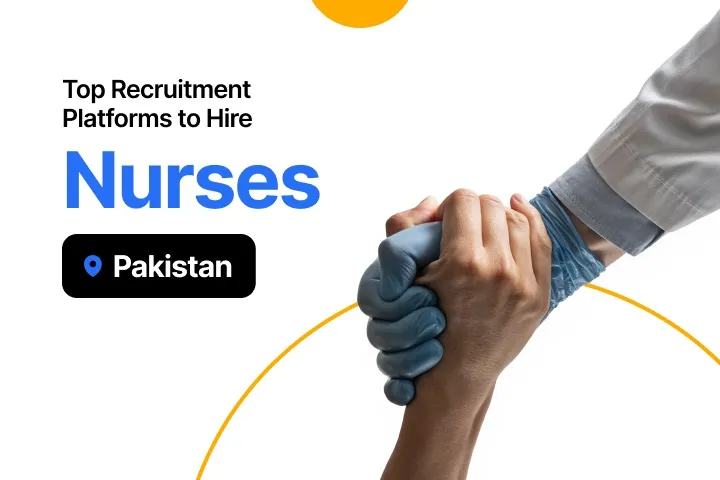The "personality hire" has become a hot topic in recent years. This refers to hiring candidates based primarily on their interpersonal skills, attitude, and cultural fit within a company rather than solely on their technical abilities or qualifications for a specific role.
A friendly, motivated personality in today's collaborative workplace can be a valuable asset for an organization. However, there is an ongoing debate about whether hiring for personality alone is an innovative and ethical hiring strategy.
Let’s explore some key arguments on both sides of this issue.
What is a Personality Hire?
A "personality hire" refers to when a candidate is hired mainly because of soft skills like:
- Strong communication abilities
- Confident and warm personality
- Ability to collaborate well with others
- Enthusiasm and eagerness to take on challenges
Rather than being hired primarily for technical skills, knowledge, or direct experience related to the open position.
Personality hires may not check all the boxes regarding skills and qualifications. However, they demonstrate the right attitude, social abilities, and cultural fit that allows them to connect with team members and company values.
Do you know The Meaning of Attrition in HR?
The Case for Personality Hires
There are some compelling reasons why personality can matter more than skills or experience in specific scenarios:
They Have Room to Grow Into the Role
While a personality hire may lack some concrete skills for a position now, a friendly and eager attitude shows the potential to grow and develop the necessary hard skills. With the proper training and mentorship, motivated candidates can quickly get up to speed.
Soft Skills Complement Hard Skills
In many jobs, from sales to engineering, interpersonal abilities like communication, emotional intelligence, and leadership are just as vital as technical expertise. Well-rounded candidates with the right attitude can master hard skills over time.
Employees lacking the concrete technical or industry skills to handle customer issues can directly impact customer satisfaction, decrease or increase sales, and affect the company's reputation.
Cultural Fit Matters
Fitting in with the company culture and values can impact happiness, engagement, and retention. Fitting in with the company culture and values can impact happiness, engagement, and retention. Considering that more than 50% of employees in a Gallup survey were "not engaged" or “actively disengaged,” warm, friendly hires that mesh well can significantly boost morale and the collaborative environment.
They're Relationship Builders
Outgoing, likable candidates often excel at building rapport and relationships within a team and across the organization. This helps collaboration, breaking down silos, sharing knowledge, and communicating ideas.
Potential Downsides of Personality-Only Hires
However, there are also some real downsides and risks to focusing too heavily on personality over qualifications:
Lack of Direct Experience
No matter how nice or enthusiastic a hire is, a lack of direct experience in a specific role can severely limit their ability to handle critical tasks and responsibilities. Onboarding and training are extensive without a baseline of relevant skills or onboarding documents.
Frustration For the Team
If other team members need to spend significant time training or correcting the work of an underqualified hire, this can cause resentment and negativity. It also pulls them away from their roles, especially when the average tenure of workers is about 4.4 years in the UAE.
Promotes Unconscious Bias
Judging candidates primarily on vague, subjective measures like "culture fit" or being "outgoing" often leads to unconscious bias. Without objective skills benchmarks, hiring becomes vulnerable to discrimination.
Also read: What is equity vs. equality?
Hurts Morale For Qualified Candidates
When highly skilled, experienced candidates are passed over in favor of less qualified personality hires, this can significantly hurt team morale. It makes employees feel that qualifications don't matter - only personality.
Higher Turnover Rates
Candidates hired solely for personality may leave the job sooner, especially if the work proves too challenging. This aligns with the observation that 67% of recruiters consider ‘culture fit’ an important factor, yet focusing solely on personality may lead to higher turnover rates.
Customers Can Suffer
Employees lacking the concrete technical or industry skills to handle customer issues can directly impact customer satisfaction, sales, and the company's reputation.
Finding the Right Balance is the Key
Rather than adopting a strict personality-only approach, the best strategy is to seek balance: candidates with both the technical and soft skills to excel in the role and within the culture.
The right compromise looks at culture-fit and objective qualifications to find well-rounded candidates that align with company values while demonstrating relevant hard skills, experience, and expertise.
With the right balance of personality and skills, companies can build collaborative teams ready to handle complex challenges and deliver exceptional results.
In summary
The personality hire appeal is clear - someone’s personality can be a vital asset. However, the honeymoon period can wear off as major knowledge gaps surface. Overvaluing personality during hiring can introduce unconscious bias and lead to unfair hiring practices.
The Bottom Line? While warm, motivated employees can undoubtedly be assets, hiring solely for subjective soft skills comes with considerable risks. Companies must find balance - attracting candidates who demonstrate relevant hard skills and experience and the personality and mindset to thrive in the role and company culture.
With a balanced approach, businesses can build diverse, qualified teams of employees who work collaboratively to drive innovation and achieve shared success. The right compromise between skills and personality is key.




